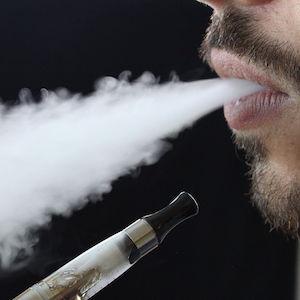E-cigarettes are "effective in helping people quit smoking" and "95% safer than smoking."* Additionally, there are "no health risks to bystanders."
What evil, conniving, greedy, Big Tobacco-loving, propaganda-spewing group of shills says that? The UK's National Health Service (NHS).
On its website, the NHS discusses a report issued by Public Health England (another UK government agency) that examined the available evidence on e-cigarettes. The report is unambiguous in its conclusion: While e-cigarettes are not risk-free, they are a good tool to help smokers quit.
CDC and U.S. Public Health Officials Can Learn from UK's NHS
It is mind-boggling how what is so plainly obvious to an objective observer is completely lost upon the CDC and other U.S. public health officials. On Monday, I detailed how the Seattle-King County health department is flat-out lying to smokers, ultimately putting their health in danger. Scaring people about e-cigarettes makes about as much sense as scaring them over nicotine patches.
Of course, the King County health department is likely taking its cue from the CDC, which also has declared a war on e-cigarettes. In June, contrary to evidence and basic logic, the CDC argued that e-cigarettes serve as a gateway to actual cigarettes. Never mind that the CDC's own data shows that cigarette use is declining in America. The CDC is on an ideological bender against e-cigarettes, and it will defy its own data in service of its crusade.
An Ideological War on E-Cigarettes
What accounts for this opposition to a product with far more pros than cons? The only plausible explanation is that U.S. public health officials are unhappy that tobacco companies manufacture some of the e-cigarettes on the market. And since tobacco companies are bad, e-cigarettes are bad, too.
If hatred of tobacco companies is what is ultimately driving the opposition to e-cigarettes, then public health officials aren't doing their jobs. The job of a health department is to reduce people's risk of getting disease. If e-cigarettes accomplish that -- and it appears that they do -- then public health officials should be supporting them as an effective intervention, regardless of who manufactures them.
When it comes to promoting Americans' health, we should expect doctors, the CDC, and state and local health departments to put aside their biases and political agendas in favor of evidence-based medicine. If a person is unwilling or unable to do that, he is simply unqualified for the job.
*Note: Another study published in February 2017 lends further support to this statement.




